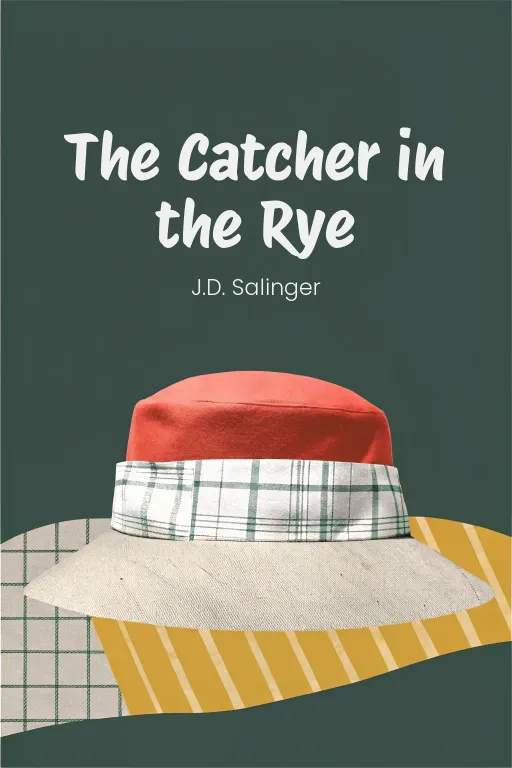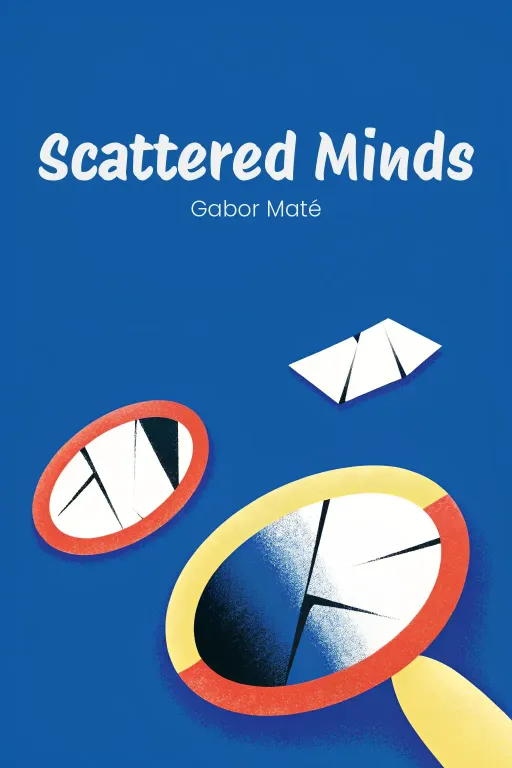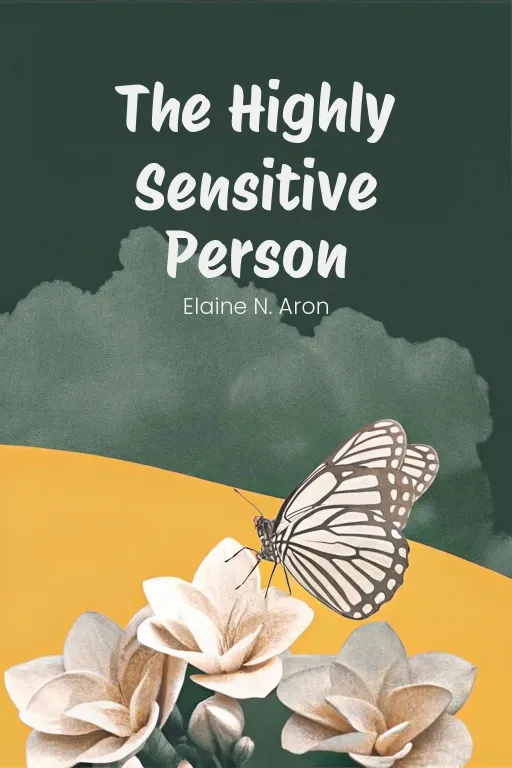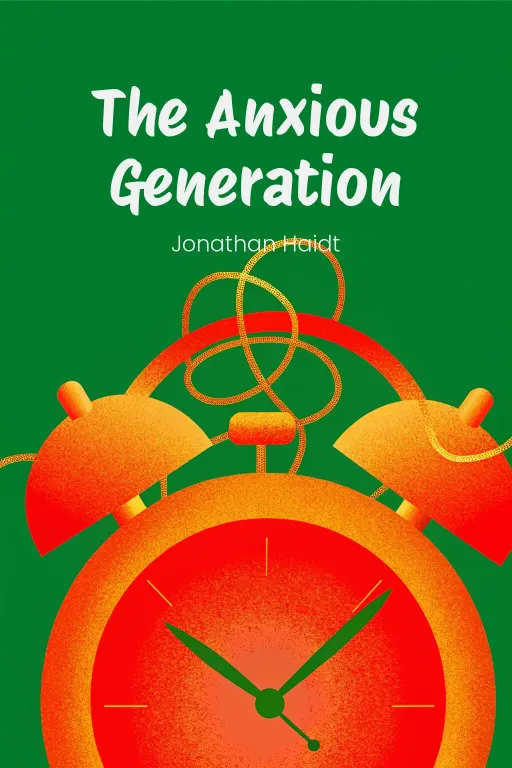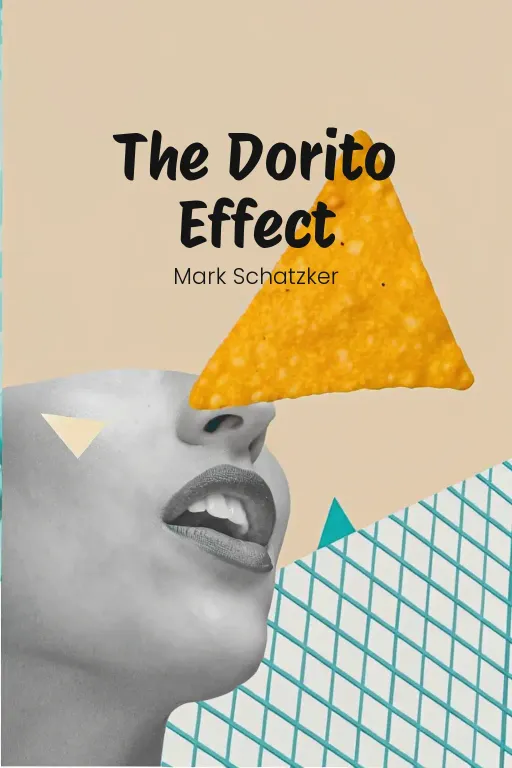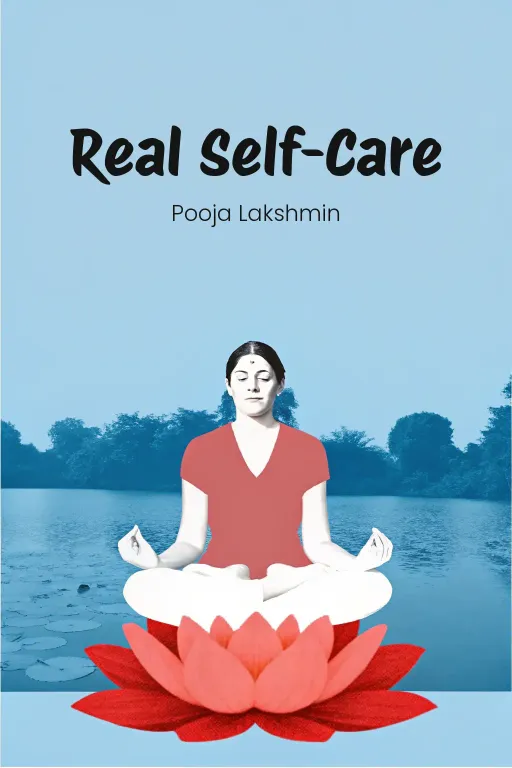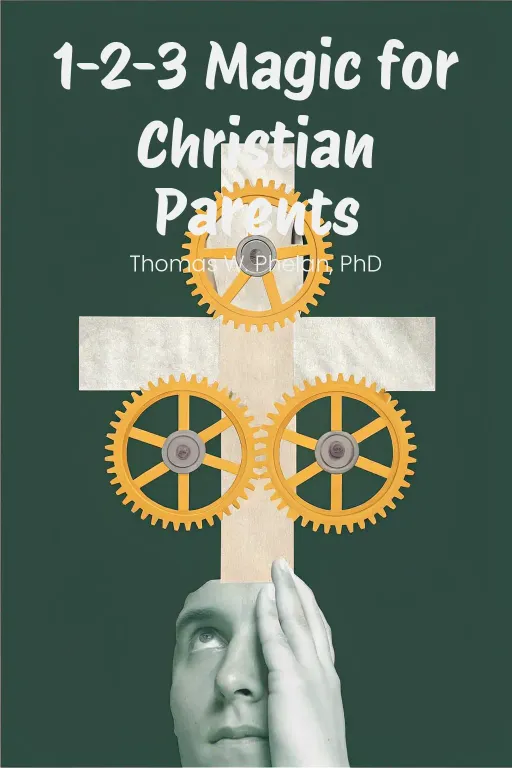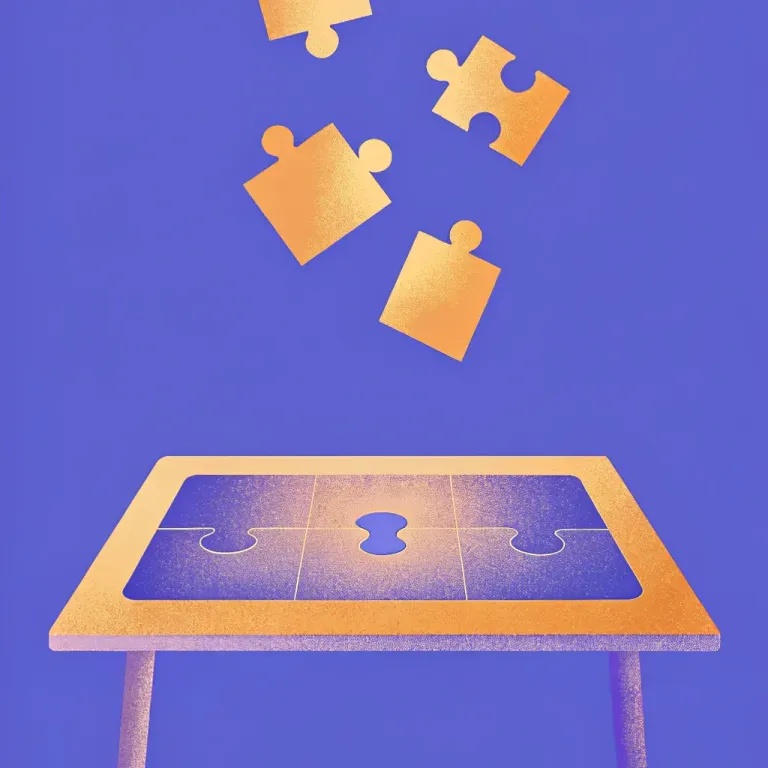
ADD: Beyond the Brain
Podcast by The Mindful Minute with Autumn and Rachel
The Origins and Healing of Attention Deficit Disorder
ADD: Beyond the Brain
Part 1
Autumn: Hey everyone, welcome back! Today we're tackling something really important and widespread: ADD, or Attention Deficit Disorder. Whether you're dealing with it personally, know someone who is, or just find yourself struggling to focus in this crazy world, this is for you. Rachel: Yeah, exactly. And let's face it, who “isn't” distracted these days? I mean, is it actually ADD? Is it just having, like, a million browser tabs open? Or is it just... modern life? Anyway, Gabor Maté's book, Scattered Minds, offers a totally fresh perspective. Autumn: Absolutely. Maté basically turns the whole ADD thing on its head. Instead of seeing it as just a fixed neurological disorder, he sees it as something much more complex – a developmental condition shaped by emotional factors, our environments, all sorts of things. He goes way beyond just the brain and asks about how relationships, families, and even societal expectations play into the whole ADD picture. Rachel: Right, and he doesn't just, like, point out the problem and leave it there, right? He's all about finding solutions. He talks about really healing, not just masking symptoms, connecting with people, understanding yourself. Even rethinking how we approach parenting, you know, education, and medicine as a whole. Autumn: Which brings us perfectly to what we want to cover today. We're going to really dig into this from three angles. First, we’ll look at how ADD actually develops – not “just” what happens in the brain, but “also” how our environment and emotions all come into play. Then, we'll talk about healing, really thinking beyond just medication to self-compassion, lifestyle changes that actually “mean” something. Rachel: And then, of course, we’re going to zoom out. How is modern culture impacting ADD itself? How are our medical approaches shaping it? It's like peeling back the layers of an onion; each layer reveals something new. And hopefully, we can find a clearer way to support people dealing with ADD. Autumn: It's a huge topic, for sure, but also super relevant right now. So, let's get started, shall we?
Understanding ADD as a Developmental Condition
Part 2
Autumn: So, Rachel, to get us started, what exactly does Maté mean when he describes ADD as a “developmental condition”? People tend to just think of ADD as a genetic thing, you know, like a wiring issue in the brain. Rachel: Exactly! I think that's the common perception, so I'm curious to know what he means by "developmental." Autumn: Well, that's one of the biggest myths Maté tries to debunk. He argues that genetics might make someone more likely to have ADD, but that's not the whole story – not even close. He makes a really important point: genetics set the stage, but a child's emotional environment determines how that stage is used. That’s why he uses the word "developmental," he's stressing that ADD is shaped by experiences, especially the emotional and relational ones a kid has growing up. Rachel: Okay, so what kind of emotional environment are we talking about here? Are we talking about serious things like neglect or trauma? Does it have to be that extreme? Autumn: It doesn't always have to be something extreme. Of course, those situations “really” highlight the connection, but even more subtle things can play a part. Like, if parents are constantly stressed, emotionally distant, or even unknowingly neglectful – you know, physically present but not “really” "there" emotionally – that can create the conditions for trouble. Maté connects this to how the brain develops, especially the prefrontal cortex. That's the part in charge of things like emotional regulation and impulse control, which are often underdeveloped in people with ADD. Rachel: Hang on, "emotional attunement" – I hear that phrase a lot, but what does it actually mean in real life? Autumn: Great question. Think of attunement as a caregiver "tuning in" to a child's emotional needs. It means paying attention to nonverbal cues – like facial expressions, tone of voice, even body language – and responding with empathy and consistency. Margaret Mahler, a child psychologist Maté mentions, described caregivers as being the child's "emotional mirrors." They basically help the child learn how to process and manage their emotions by showing them calm and safety. Rachel: So, if I understand you correctly, a lack of attunement isn't necessarily a parent yelling at their kid; it could be as simple as being too busy, distracted, or simply never fully noticing what the child is experiencing? Autumn: Precisely! Take Maté's own life, for example. He talks about being born in Hungary during World War II, with the shadow of the Holocaust hanging over everything. His mother loved him deeply, but she was under tremendous stress, worried about survival and safety. That created a kind of emotional inconsistency – not intentionally, of course, but the stress was obvious, and as an infant, he absorbed it. That emotional atmosphere shaped his brain's development, leaving an imprint of hypervigilance and distractibility. Rachel: Interesting. It’s like his brain was reading the room even before he could talk. It kind of makes you wonder, are we all just emotional sponges, constantly soaking up our surroundings? And is ADD just one of the ways that stress can manifest in some people? Autumn: Exactly! Maté actually has a term for this: "emotional allergies." He compares it to how someone might develop a physical allergy after being exposed to a toxin. But in this case, the "toxin" is emotional turmoil, and the "allergic reaction" is ADD – hyperactivity, impulsivity, or inattention. It's the brain's way of adapting to an emotionally overwhelming environment. Rachel: Wait a minute, adaptive? Are you saying that ADD symptoms might have actually served a purpose at some point? Autumn: That's exactly what Maté argues. One of the most fascinating ideas is that these behaviors often start as survival mechanisms. Take dissociation, for example. When a child faces stress they can't control – like parents arguing or feelings of being ignored – they "tune out" as a way to escape psychologically. It’s the brain protecting itself from the discomfort of the moment. But over time, this tuning out becomes a habit, and you see it manifest as distractibility or daydreaming in the classroom. Rachel: So, dissociation is like an emergency exit for the brain. I get it, but at some point, the exit becomes the main door, and then you're stuck outside? Autumn: Exactly! And the problem is, when a child with these symptoms is labeled as "lazy" or "unmotivated," it completely misunderstands what's happening. We're not seeing laziness; we're seeing a survival mechanism. That's why Maté is so frustrated with simplistic labels and why he argues against the DSM for reducing ADD to a checklist of symptoms. Rachel: Right, because then you're just treating the surface-level behaviors without addressing the “real” issue. But, playing devil's advocate here, if ADD has such deep emotional roots, wouldn't healing it require truly perfect conditions – which, let's be honest, most of us don't have the resources or the time to provide? Autumn: I hear you, Rachel. And Maté doesn't pretend that this is easy. What he's arguing for is a change in mindset: instead of rushing to control or suppress the symptoms with discipline, medication, or quick fixes, we should first ask, "What does this child – or adult – truly need?" It's not about being a perfect parent, teacher, or caregiver; it's about creating pockets of safety, consistency, and awareness wherever possible. Rachel: Hmm, "pockets of safety." That's a good way to put it. But let me dig a bit deeper – does Maté think there's no place for medication in all of this? Isn't that one way some people can at least level the playing field while working on the underlying issues? Autumn: He's not against medication, but he's very careful about how we use it. In Maté's words, medication can be a tool, but it's not the solution. He worries that it's often treated as a standalone fix. Taking that risks ignoring the vital emotional and developmental work needed for “real” healing. Would you patch up a leaky pipe without first finding out where the water is coming from? Rachel: Good point, but if a leaky pipe is causing a flood, you'd probably want a quick fix before you start tearing down walls. Maybe there's room for both – the temporary fix and the long-term solution? Autumn: Absolutely. Maté isn't telling us to throw away our tools; he's asking us to use them thoughtfully, with the bigger picture in mind. Ultimately recognize that the root of ADD is often in the emotional soil, find “real” change occurs when we can address it on that deeper level. Rachel: That makes sense. So much of what you've said circles back to this central idea of reframing ADD – not as some inherent flaw, but as a way to adapt to an environment. I think it forces us to rethink not only how we treat the condition but how we see the people who live with it.
Healing Strategies for ADD
Part 3
Autumn: Exactly! That's where we pivot into healing strategies, and it’s such a hopeful part of Maté’s work. This understanding really sets the stage for exploring practical strategies to manage and heal from ADD. What I love is that these strategies aren’t about “fixing” the person, but rather helping them build emotional security, self-awareness, and resilience. The whole approach shifts from seeing ADD as a problem to be solved to acknowledging it as a journey of growth, you know? Rachel: So, we're talking about healing through principles, not prescriptions, huh? Where do we even start with these strategies? What does this healing actually look like in practice? Autumn: Well, at its heart, it begins with emotional growth and secure attachments. Maté emphasizes that for children and adults with ADD, strong, supportive relationships are really foundational. And when I say "supportive," I don’t just mean, you know, cheering someone on at soccer practice; it’s about creating an environment of emotional safety where people feel seen, heard, and understood. For instance, the story of Brian? Rachel: Ah, the kid with the explosive anger, and defiance? What was his journey? Autumn: Yeah, Brian was an eleven-year-old really struggling with intense anger and oppositional behavior. His parents initially focused on controlling the behaviors – punishments and rewards, the typical playbook, right? But under Maté’s guidance, they shifted their approach to something far deeper. Instead of trying to fix the symptoms, they worked on building emotional trust. They chose understanding over discipline, creating consistent warmth and connection. Over time, his anger softened as he began to feel secure in his relationships. And that security allowed him to regulate his emotions better, and even his self-perception changed – he no longer saw himself as a “bad kid”. Rachel: So, it wasn’t about controlling the chaos but addressing the emotional foundation underneath it? I imagine a lot of parents must struggle with that initial leap. It’s hard not to focus on the symptoms when they’re so in your face every day. Autumn: That’s part of the challenge Maté highlights. If we only deal with the surface behaviors, we miss the chance to nurture deeper healing. He points out that even in everyday scenarios—a rushed morning before school, for example—a parent’s frustration can inadvertently escalate a child’s insecurities. But when a parent steps back, slows down, and engages empathetically, it sends a powerful signal: "Your feelings matter more than the backpack you forgot." That simple attunement can make all the difference. Rachel: Yeah, but let’s be real. In the thick of that chaotic morning marathon—breakfast burning, clock ticking—it’s not so easy to pause and think, "How do I attune myself emotionally in this moment?" Where do parents, or even teachers, find the bandwidth for that? It's exhausting just thinking about it. Autumn: It's a valid concern, definitely. Maté doesn't claim it's simple. It's more about creating a pattern of connection over time. It might start with small, intentional shifts – maybe taking a deep breath before responding to a child’s frustration, or finding a moment at bedtime to ask about their day. Parental attunement doesn’t mean perfection; it means consistency. When kids feel truly supported, even in little ways, it strengthens their resilience and makes those behavioral challenges easier to manage in the long run. Rachel: Right, which also ties into creating those "pockets of safety" you mentioned earlier. But how does this emotionally focused approach translate to adults with ADD? I mean, what if they lacked that foundation as children—can they still reconstruct things a bit in adulthood? Autumn: Absolutely. Emotional growth and healing don't stop at any particular age. For adults, the same principles apply, only now the work involves self-compassion, and becoming your own source of emotional safety. Maté talks about this as accepting yourself as you are—quirks, struggles, and all—and finding relationships or habits that nurture that acceptance. It's like rewriting the script of your inner dialogue and shifting from self-criticism to self-kindness. Rachel: Makes sense. But, you know me, I’ve always got questions about practicality. Emotional healing is great, but it’s only one piece of the puzzle. What about the lifestyle strategies Maté advocates? How do things like nutrition, sleep, and mindfulness fit into all of this? Autumn: Those are crucial pieces that complement emotional growth. Take nutrition, for example. The brain craves stability, and for individuals with ADD, it starts with regulating things like blood sugar. A diet with frequent spikes and crashes—sugary cereals or carb-heavy meals—can significantly impact mood and focus. Maté suggests emphasizing whole grains, proteins, and healthy fats to create a cognitive steadiness. Rachel: Makes sense – fuel the brain well, and it performs well, makes sense! But here’s the rub: if distractibility is already a hurdle, how do you help someone with ADD stick to consistent, healthy eating habits? Autumn: That’s where practical solutions matter. Small, manageable steps can go a long way. Like prepping simple meals in advance, or having those grab-and-go snacks available. Even engaging in the preparation process together—whether it’s a parent and child or an individual doing it for themselves—can make a habit more engaging and achievable. It’s about removing barriers, not expecting perfection. Rachel: Okay, I got it, speaking of habits though, let's talk about sleep. Everyone knows they need it, and yet it’s the first thing to go, especially for folks with ADD who struggle with restlessness or nighttime hyperactivity. Autumn: Sleep is the cornerstone of mental and emotional health, particularly for ADD. Maté shares the story of Trevor, who struggled with bedtime anxiety. His solution was a calming nighttime routine, including things like reading or gentle stretching. These practices signal the brain that it’s time to wind down. Beyond just resetting energy levels, restful sleep helps to really consolidate memories and reduce emotional strain, both of which are essential for those navigating the intensity of ADD. Rachel: And then there’s physical activity, right? I've read studies about how exercise boosts dopamine and serotonin—pretty much the chemical antidotes to ADD’s challenges. Autumn: Absolutely. Exercise ties directly into emotional regulation and mental clarity. Even something as simple as morning stretching can provide grounding and preparation for the day. And if you incorporate creativity—say through dance or expressive movement—it becomes not only physical, but also a form of emotional outlet. Rachel: Which brings us to creativity and nature... both refreshingly low-tech compared to much of modern life. I liked the example in the text of someone spending an hour observing a patch of grass. It’s such a vivid reminder of how the natural world can recalibrate the mind. Autumn: Oh, there’s something profoundly healing about connecting to nature or creative endeavors. Moments of stillness, observation, or artistic expression allow individuals with ADD to channel their busy minds into focus and rejuvenation. For instance, Colin’s journey—from struggling filmmaker to someone who found purpose through storytelling—shows how creativity can give structure and meaning to what might otherwise feel chaotic. Rachel: Yep, and finally, we can’t ignore mindfulness. though, I imagine asking someone with ADD to meditate might feel like asking a cat to sit still for a portrait. Autumn: Exactly! That’s where mindfulness becomes a really tailored practice. Maté stresses that even brief moments of focused breathing or mindful observation can rewire neural patterns over time. It’s not about achieving a perfect state of calmness—it’s about cultivating awareness and building the capacity to sit with one’s own thoughts, even amidst the mental chatter. Rachel: So, to sum up, we’re looking at a holistic approach – the emotional strengthening through relationships, practical interventions like diet and sleep, and these grounding strategies that involve nature, creativity, and mindfulness. It’s comprehensive, but deeply human... something I think adds incredible value to these conversations around ADD.
Societal and Cultural Dimensions of ADD
Part 4
Autumn: So, keeping those strategies in mind, let's zoom out a bit and look at how society and culture actually shape our understanding, experience, and even the treatment of ADD. This is such a compelling part of Scattered Minds because it doesn't just focus on the individual. It really puts ADD into the context of societal pressures, modern parenting styles, even the medical system itself. Rachel: Exactly right. We're going from this really intimate setting – parents, caregivers, one-on-one relationships – to these bigger cultural forces, which are basically the environment we all live in. And let's be honest, those waters can be pretty rough. Think about technology, the never-ending demands for productivity, economic stress... it's a recipe for burnout, isn't it? And then we expect kids with ADD, or anyone for that matter, to thrive in all of that chaos? Autumn: Absolutely. Maté argues that modern life, especially in Western cultures, actually makes the challenges of ADD even harder, rather than offering support. He calls it a paradox. We say we value individuality, success, and being self-sufficient, but then we create a culture that, frankly, undermines focus, connection, and emotional stability – which are all crucial for managing ADD. Rachel: So, where does all this modern chaos hit the hardest? I mean, it can't just be one thing, can it? Are we talking about pressure on parents, our educational systems, or just the general noise of life? Autumn: It's all of that, really. But let's start with digital technology – that’s huge. We're constantly surrounded by devices that are designed to grab our attention. Social media, notifications, that endless scroll... they train us to take in these quick snippets of information, but at the expense of being able to focus for any length of time. For someone with ADD, it's like, well, amplifying that distractibility with a megaphone. Rachel: It’s like the whole world is just one giant jigsaw puzzle, but you never get the picture on the box to show you what it’s supposed to look like. And kids today, they're born into that chaos, so what chance do they even have to learn to focus? Autumn: That's the big question, isn't it? And the problem gets even worse when parents are overwhelmed themselves. Maté points out that many parents are juggling financial pressures, career demands, and even their own unresolved emotional stress. They might be physically present, but sometimes they're emotionally unavailable, which leads to inconsistencies in what he calls "attunement" – that ability we talked about before, to really tune in to a child's emotional needs. Rachel: Which makes this a real vicious cycle, doesn't it? The parent's stress ends up becoming the child's stress, which then feeds into the child's ADD traits. Then, the parents blame themselves or just reach for external fixes like medication. It’s like trying to fix a problem using the same tools that caused it in the first place. Autumn: Exactly, that's basically Maté's whole argument in a nutshell. He gives the example of a parent who might be emotionally distracted, but provides their child with the basics – food, shelter – but not that consistent emotional connection. The child might start tuning out as their way of coping, and then suddenly, they get labeled with ADD. But instead of really looking at those underlying issues, a lot of families get pushed toward quick solutions, which brings us to the influence of pharmaceutical culture. Rachel: Medication. Ah, yes, the double-edged sword. Let’s unpack that for a second, because, in some ways, medication can be a real lifeline for people. But, in Maté’s view, it's also become this over-prescribed crutch that prevents people from doing the deeper work of healing. Autumn: Precisely. Maté isn't against medication, and he recognizes that it can be helpful for managing symptoms. But he does critique how the medical industry focuses almost exclusively on medication. He points out that pharmaceutical companies “really” dominate research and treatment, which means that other options, like emotional support or therapy, are seriously underfunded. Rachel: It’s just classic capitalism, isn’t it? Treating ADD with pills… well, it’s scalable, profitable, and you get results pretty quickly. Therapy, emotional attunement, or even deeper systemic change – none of that neatly fits into a quarterly earnings report. So, pills become the go-to prescription. Autumn: And when that happens, the whole story around ADD kind of shifts. Instead of seeing it as something developmental that's influenced by relationships and culture, it gets reduced to a biological problem that needs a chemical fix. This focus on biology just misses so much of the bigger picture, like the emotional and environmental factors that play such a significant role. Rachel: Right, and—this might sound harsh—but there's a stigma in there too, isn't there? Like, if it's purely biological, it's easier to just dismiss the person as broken or malfunctioning. This focus on pharmaceuticals unintentionally reinforces the idea that people with ADD need to be "normalized," instead of truly understood. Autumn: Exactly. Maté shares personal stories to highlight this. He talks about Elizabeth, this interior designer who was doing great at work thanks to medication, but still felt emotionally disconnected and deeply inadequate. Medication gave her this appearance of being "normal," but it didn't touch the insecurities and the unresolved emotional pain that were there underneath. Rachel: So, you end up with this tension: people might look like they’re functioning fine on the outside – hitting deadlines, staying on top of things – but on the inside, they're “really” still struggling. And society keeps applauding the external performance, so the deeper issues get ignored. Autumn: And that's why Maté “really” pushes for a more compassionate, comprehensive approach – one that doesn't just see ADD as a disorder that needs to be managed, but as the result of unmet emotional needs. This requires us to rethink not just medicine, but also how we look at community and culture as a whole. Rachel: Okay, now we're getting to one of my favorite parts: societal transformation. Because it's great to focus on individual healing, but unless we actually address the systems we live in, we're basically asking people to swim upstream their entire lives. Autumn: Absolutely. Maté talks about the need to make emotional intelligence a priority – not just in families, but as a widely-held societal value. Imagine if schools spent as much time teaching emotional regulation as they do on standardized testing. Or if workplaces recognized the strengths and creativity that people with ADD bring, instead of forcing everyone to fit into these rigid boxes of productivity. Rachel: You mean a revolution where it’s okay to admit you process the world differently – as long as you’re supported in a way that lets you thrive? Autumn: Exactly. Maté even writes about the healing power of community. Think about support groups, for example, where people with ADD and their families can connect, share their experiences, and “really” break down the isolation that often comes with this condition. It’s not just about managing symptoms, it’s about fostering connection and belonging. Rachel: It’s the antidote to that perform-until-you-drop cultural mindset we all seem to be stuck in. And I guess that brings us full circle, doesn't it? If ADD stems, at least in part, from unmet emotional needs, then strengthening community and fostering empathy might just be the reset button that we need. Autumn: Precisely! By understanding ADD through a societal lens, we can unlock a more compassionate and inclusive way to support not only people individually, but also our culture as a whole. It's “really” not just about fixing ADD – it's about evolving together.
Conclusion
Part 5
Autumn: Okay, so to bring it all together, today we really dug into Gabor Maté’s perspective on ADD. He sees it less as a purely genetic thing and more as a developmental issue that's influenced by our emotions and environment as we grow. We also touched on how secure attachments and emotional connection are super important for healthy brain development, the concept of emotional “allergies,” and how things like distractibility or hyperactivity can actually be coping mechanisms for dealing with stress or unmet needs. Rachel: Exactly, Autumn. And we went beyond just understanding why this happens. We explored how to actually heal and support people. That included things like self-compassion, building secure relationships, and even practical stuff like diet, mindfulness practices, and tapping into our creativity. And we can't overlook Maté's criticism of society itself. Our modern world, with its crazy demands and constant distractions basically makes the very challenges of ADD even worse. So, Autumn, it's like society is actually fueling this condition. Autumn: It’s a really powerful point, Rachel! ADD isn’t just something to be “fixed.” It’s more like a wake-up call to build environments—at home, in schools, at work, everywhere—that foster connection, focus, and emotional well-being. Whether we’re talking about how we parent, how we teach, or even how we use medication, Maté is pushing us to rethink our support systems with empathy and intention. Rachel: So, maybe the big question we should all be asking ourselves is: How are we, both individually and as a society, creating spaces where people feel emotionally safe? And what small steps can we take today to better support not only those with ADD, but really, everyone who's trying to navigate the complexities of modern life?" Autumn: Right. Real change comes from understanding, and I think that’s what conversations like these are all about, you know? Thanks so much for tuning in as we explored this really rich and thought-provoking stuff. Rachel: Absolutely. Until next time, keep learning, keep questioning everything, and maybe take a good, hard look at your own emotional mirrors along the way. See you soon!
